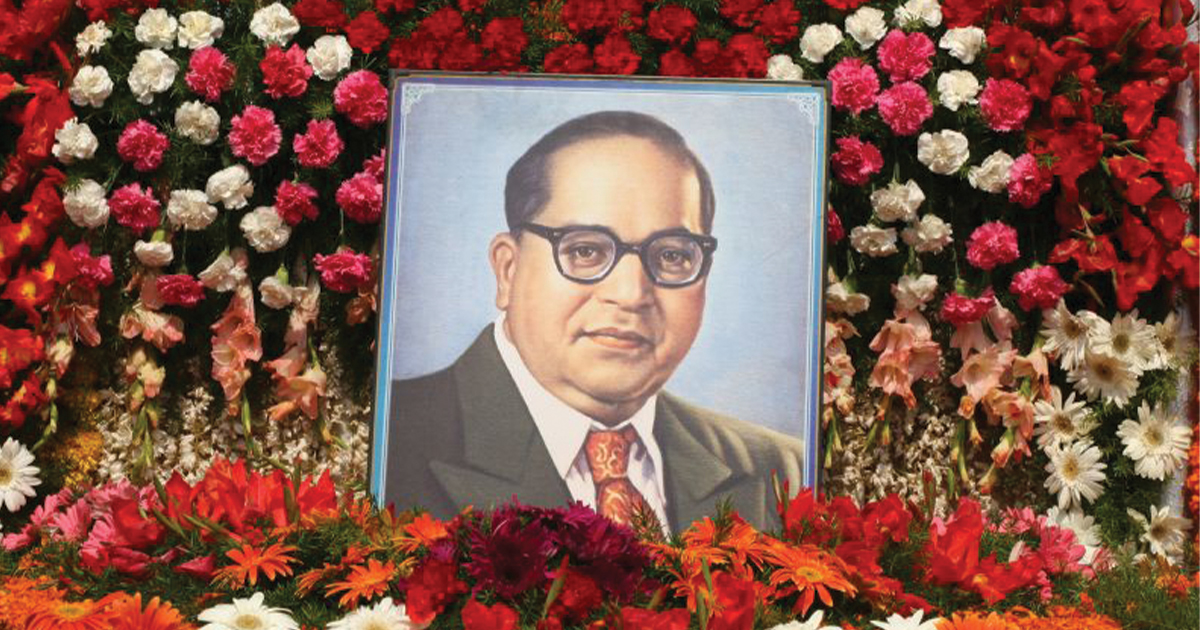Now Reading: Remembering Dr. B.R. Ambedkar on his Death Anniversary
-
01
Remembering Dr. B.R. Ambedkar on his Death Anniversary

Remembering Dr. B.R. Ambedkar on his Death Anniversary
6th of December is observed every year all over India as Mahaparinirvan Din, the death anniversary of Dr. Babasaheb Ambedkar. He was an economist, politician and social reformer and was considered as ‘The Father of the Indian Constitution’. He was known for his campaigns against social discrimination against Dalits, women, and labor. Three days before his death he completed his manuscript – The Buddha and his Dhamma.
Dr. Ambedkar was a prolific student, obtained doctorates in economics from both Columbia University and the London School of Economics. In 1990, the Bharat Ratna, India’s highest civilian award, was posthumously conferred upon Dr. Ambedkar.
Baba Saheb Ambedkar’s role is important in constitutionalising India, evident first in his witness to the 1919 Southborough Committee on Franchise, followed by his intervention in the 1930 Round Table Conference in London, where he defended compensatory discrimination for the untouchables in opposition to Mahatma Gandhi.
As an avowed supporter of equality, Dr. Ambedkar rejected the idea of birth-driven social segregation and he strongly felt that the social order of caste was antithetical to the political institutions of democracy. Being born an ‘Untouchable’, Dr. Ambedkar faced caste discrimination of the worst kind. He was treated like a leper and was shown his way out of hairdressing salons, hotels, temples and offices. Despite this stigma he worked his way forward fighting discrimination at every step and achieved the highest degrees from world-famous universities and rose to become one of the makers of modern India.
As a scholar, Baba Saheb Ambedkar wrote several books on caste, economics, sociology, law, history and politics. As a mass leader, he led social, political and labor movements, and founded political parties and colleges.
Here’re a collection of article that you might be interested to read:
Here are his 10 quotes that teach us the real meaning of education, freedom and patriotism.
- Life should be great rather than long.
- Men are mortal. So are ideas. An idea needs propagation as much as a plant needs watering.
- I measure the progress of a community by the degree of progress which women have achieved.
- Religion and slavery are incompatible.
- Caste is not a physical object like a wall of bricks or a line of barbed wire which prevents the Hindus from co-mingling and which has, therefore, to be pulled down. Caste is a notion; it is a state of the mind.
- For a successful revolution it is not enough that there is discontent. What is required is a profound and thorough conviction of the justice, necessity and importance of political and social rights.
- Democracy is not merely a form of government. It is primarily a mode of associated living, of conjoint communicated experience. It is essentially an attitude of respect and reverence towards fellow men.
- However good a Constitution may be, if those who are implementing it are not good, it will prove to be bad.
However bad a Constitution may be, if those implementing it are good, it will prove to be good. - Unlike a drop of water which loses its identity when it joins the ocean, man does not lose his being in the society in which he lives. Man’s life is independent. He is born not for the development of the society alone, but for the development of his self.
- I like the religion that teaches liberty, equality and fraternity.
Read related articles:
Dr. B.R. Ambedkar views on Abolition of Caste System in India










